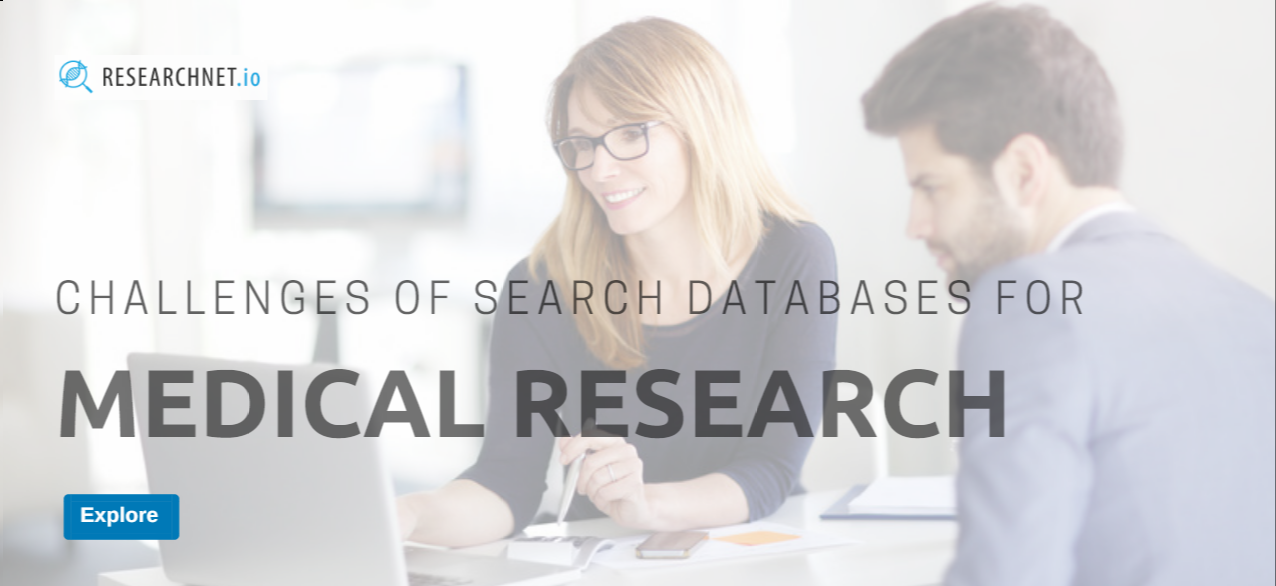Limitations of Search Databases in Medical Literature

Given the exponential growth in medical literature, finding relevant information sooner is critical. Researchers, with more content and less time to analyse it, need systems that are smart and intelligent enough to integrate the scattered content, provide quicker discovery of information and tools for thorough analysis of content. However, the search databases currently available to medical researchers have certain limitations which often affect the quality of search results obtained as well as the time required for conducting the research. Here we shall look at some of these challenges which, if successfully overcome, can pave the way for faster and more accurate data for research.
- Shallow Search
Often when you type in a query or keyword into a search database, the results that show up can be quite shallow as they are relevant to the specific keyword alone, without taking into consideration related words or synonyms. For example, when you search for 'colour blindness', the results that include synonyms of the term, such as 'Achromatopsia', do not show up. This leads to the researcher missing out on important yet highly relevant results. - Insufficient Filters
Most search databases have no provisions for the application of multiple filters to zero in on the most relevant results. In the absence of filters, search takes longer, along with the high probability of missing out on relevant information. For example, when you're looking up for drugs, you need to be able to filter with a combination of disease, age and region. This is not an option with most search databases. - Inconsistent Search Results
Inconsistency in the number of search results showing up for different keywords, can be another problem. For example, while 'cancer treatment' fetches close to 4 million results, looking up for 'safety of ECTs in pregnancy' fetches 0 results! Now, researchers use search databases to find out as much information as practically possible under a certain topic. In such a scenario, little to no availability of information about a topic can mean a lot of trouble for researchers who must scout for the information elsewhere. - Lack of Sufficient Evidence Grading & Guidance
Evidence-based Research is an approach to medical practice that aims to optimize decision making by emphasizing on the use of evidence from well-designed and well-conducted research. Strongest Evidence (coming from meta-analysis, systematic reviews, and randomized controlled trials) can yield strong recommendations, while weaker Evidence (such as from case-control studies) can yield only weak recommendations. Identification of Evidence Level for medical literature and studies, makes it easy for researchers to be assured that the information comes from a verified and reliable source. - Inconsistency in Size and Coverage of the Database
Not all search databases cover every subject under the sun. While some cater to specific subjects only, others cover a wider range of subjects. This can be a challenge for the researcher, as he/she must review the subjects covered under a database before choosing to work with it. Not just with subjects, this issue can also arise with publications, as certain databases choose to list journal articles alone, while others are more inclusive and include books, dissertations, government documents and more. - Difference in Date Coverage and Updates
Most online databases are pretty recent and do not include content that is years old. This can be a challenge for researchers looking for data from research conducted many years back. Researchers who are looking for fairly recent data can also face a challenge as different databases are updated at different intervals - monthly, quarterly or yearly. This makes it essential to check for the date coverage of the database as well as the date it was last updated on. - Little or no Provision for Collaborative Work
With most search databases, there is no provision to collaborate work with other researchers. This makes it difficult to manage and collaborate on work when bringing together distant researchers. The researcher's challenge is to find a search database that provides a platform to connect with their colleagues, jointly author research papers and securely shares information on the project.
So, what is the solution to these challenges faced by the medical researchers? ResearchNet can be your solution, it provides an integrated platform to manage all your research, authoring and collaboration needs. It covers 28 million citations for biomedical literature, 1.1+ million articles, 29,000 Journals. Integration with PubMed and Zotero
Find more about ResearchNet.io (Powered By 3RDi Search)

